This is the free version of The Morning Dispatch. To unlock the full version and start your day informed on the biggest stories impacting your world, become a Dispatch member.
Happy Tuesday! Police in Tempe, Arizona, arrested a GrubHub driver during a traffic stop—but the officers still made sure his in-progress Little Caesars delivery arrived at its destination. “The order was Hot-N-Ready, and the suspect was Caught-N-Steady,” the police department said in an X post that included a video of the officers handing off the pizza to a confused but, by all appearances, grateful, customer. Did the driver get five stars? Hard to say. But we’re heartened to see law enforcement going above and beyond the call of duty.
Quick Hits: Today’s Top Stories
- President Donald Trump on Monday threatened to impose sweeping tariffs on Russia if a peace deal with Ukraine is not reached within 50 days. Trump initially announced possible “secondary tariffs,” which would penalize Russia’s trade partners, at “about 100 percent.” However, the White House later clarified to CNN that Trump was referring to a 100 percent tariff on Russian goods in addition to secondary sanctions on nations that buy Russian oil. “I’m disappointed in President [Vladimir] Putin, because I thought we would have had a deal two months ago,” Trump said during an Oval Office meeting with NATO Secretary-General Mark Rutte. The White House has used secondary tariffs before, implementing a 25 percent levy on purchasers of Venezuelan oil in March. The suggestion of increased tariffs on Russia came as Sens. Lindsey Graham and Richard Blumenthal introduced a bipartisan bill to impose economic sanctions on Russia, giving the president the power to impose 500 percent tariffs on any country that buys Russian natural gas, oil, or uranium.
- President Trump on Monday also announced plans to provide Ukraine with new U.S.-made weapons. The military equipment—including up to 17 Patriot air defense systems requested by Ukrainian President Volodymyr Zelensky—will be sent to NATO, which will then coordinate weapons transfers to Kyiv. In some instances, members of the defensive alliance will send Ukraine their own weapons and purchase American arms to replenish their arsenals. Trump also noted that Washington’s NATO allies will pay for the weapons themselves, the first wave of which will reportedly cost $10 billion. The decision marks a notable reversal for the U.S. president, coming less than two weeks after the Pentagon paused shipments of weapons previously committed to Ukraine.
- Fighting between Sunni Bedouin tribes and Druze militias in a southwest province of Syria killed more than 100 people on Sunday and Monday, according to the United Kingdom-based Syrian Observatory for Human Rights. The clashes, which drew in Syrian government forces, marked the latest flare-up of sectarian violence since forces led by Ahmed al-Sharaa, now the nation’s interim president, toppled Bashar al-Assad’s regime in December. On Monday, Israel carried out strikes against tanks “in order to prevent their arrival” at the scene of the clashes, but it remains unclear whether the attacks targeted the Syrian government or a local militia. Israel has promised to protect Syria’s Druze, a minority religious sect, and warned Damascus against building a military presence near the two countries’ border.
- Federal Reserve Chair Jerome Powell has asked the Fed’s inspector general to review the central bank’s $2.5 billion renovation of its headquarters amid heavy criticism from the Trump administration, Axios reported Monday. The White House has begun laying the groundwork to fire Powell over the renovation, installing loyalists on the National Capital Planning Commission—the panel that oversees urban planning in Washington, D.C.—just as Office of Management and Budget Director Russell Vought vowed to launch an investigation into the project. Vought also alleged that Powell misled Congress about the planned renovation, and on Sunday, National Economic Council Director Kevin Hassett said that Trump’s authority to dismiss Powell was “being looked into.” Trump has previously called on Powell to resign amid frustration that the Fed has not lowered interest rates.
- The Supreme Court ruled Monday that the Trump administration can continue mass layoffs at the Department of Education while litigation continues. In an unsigned ruling, the court granted the administration’s request to pause a May order from a federal judge in Massachusetts requiring the administration to reinstate 1,378 fired Education Department personnel. Justices Sonia Sotomayor, Ketanji Brown Jackson, and Elena Kagan dissented from the order, with Sotomayor writing that the ruling “hands the Executive the power to repeal statutes by firing all those necessary to carry them out.” The decision clears the way for Education Secretary Linda McMahon to dismantle the department through sweeping dismissals, although the agency cannot be fully dissolved without congressional approval.
- Former New York Gov. Andrew Cuomo on Monday announced plans to run in the November general election for New York City mayor as an independent, three weeks after his loss in the Democratic primary to self-described socialist candidate Zohran Mamdani. In a video announcing his decision, Cuomo criticized his former Democratic opponent but did not mention incumbent Eric Adams—who is also running as an independent—or Republican candidate Curtis Sliwa. However, in a letter to supporters, Cuomo reportedly indicated plans to drop out of the race by mid-September if polls don’t show him as the leading challenger to Mamdani.
Southern Syria Simmers
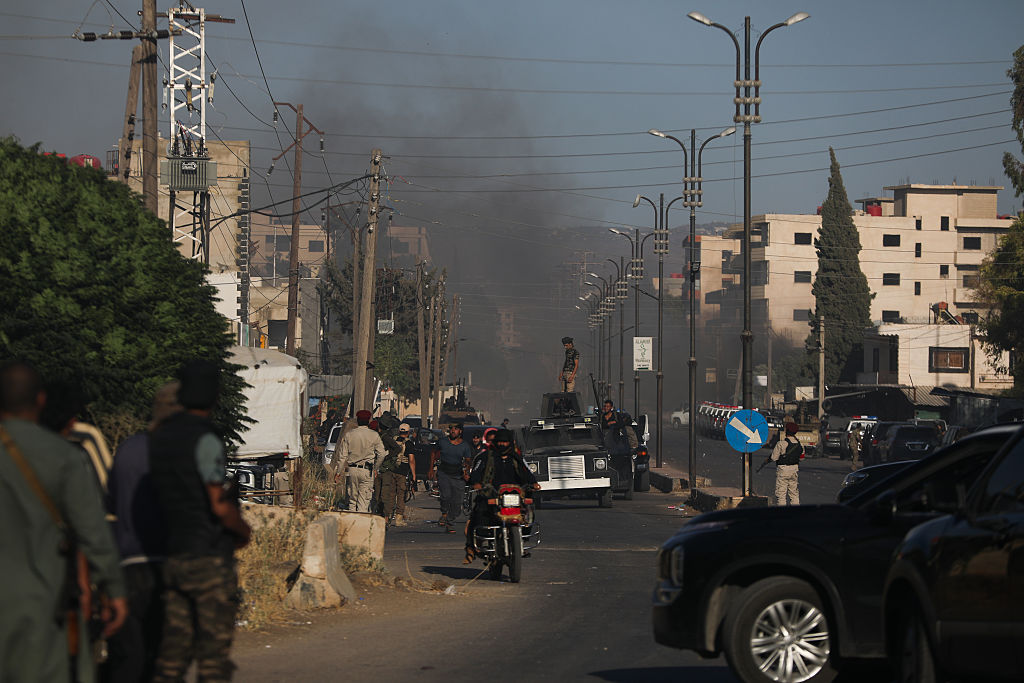
The southwest Syrian province of Sweida, home to members of the Druze religious minority, is no stranger to sectarian conflict. In June 2018, with the country in the throes of civil war, ISIS operatives carried out a wave of coordinated suicide bombings and shooting attacks on Sweida’s capital city and surrounding villages, killing nearly 250 people and taking dozens captive.
The specter of religious strife returned to the province this week, as tit-for-tat violence between Sunni Bedouin tribes and Druze militias escalated into a full-blown military confrontation. Clashes that began with the kidnapping of a Druze vegetable merchant in Sweida city left nearly 100 people dead over the course of Sunday and Monday, according to the United Kingdom-based Syrian Observatory for Human Rights (SOHR).
The fighting quickly drew in the Syrian government, which announced Sunday that it had deployed troops to the province to quell the violence. But local reports indicated that some members of the security forces joined the fighting on the side of the Bedouin fighters, reviving fears that the Islamist-led rebels who toppled Bashar al-Assad’s regime in December would eventually turn their guns on Syria’s religious and ethnic minorities. For the new leaders in Damascus, meanwhile, the flare-up underscored the difficulties of unifying the country’s many armed factions—or at least forcing them into submission—particularly as it attempts to open a new chapter with the U.S. and Israel.
In a statement Monday, the Syrian Interior Ministry described the incident as “a serious threat to civil peace and public security and is against law and the values of coexistence and national unity,” expressing its “full respect for the rights of all Syrians.” Yet the government renewed its calls for local militias, including the Druze of Sweida, to relinquish their weapons to the newly formed state—a continuing point of tension as interim President Ahmed al-Sharaa tries to consolidate power.
In Sweida, the site of recent fighting, al-Sharaa has struggled to bring various armed groups under the umbrella of his transitional government. There and elsewhere, leaders of Syria’s Druze—a distinct religious and Arab ethnic group spread across multiple Middle Eastern countries—have largely resisted Damascus’ demands to lay down their arms, particularly amid concerns that doing so would make them vulnerable to attacks by rogue security forces.
This latest violent episode affirmed those fears. In a statement, the Men of Dignity—one of the largest Druze groups in Sweida—said that it held the government “primarily responsible” for the situation, citing “its failure to maintain security, its silence in the face of repeated violations and its tolerance of affiliated factions interfering and siding with one group over another.”
“Sweida was and will remain a land of dignity and coexistence,” the faction added. “It will not be drawn into any sedition, but at the same time, we will not allow it to become an open arena for settling scores.”
Syria has a Druze population of around 700,000 people, the majority of whom are concentrated in the south. Although many Druze communities celebrated Assad’s ouster in December, the resulting power vacuum has also left them and other minority groups distinctly vulnerable as long-simmering tensions erupt. In March, clashes in Alawite-majority areas along Syria’s Mediterranean coast—including reports of widespread revenge killings—left more than 1,300 people, mostly civilians, dead in just three days. And in May, a video of a Druze man allegedly cursing the Prophet Mohammed—which Druze leaders said was faked—circulated online, setting off fighting in Damascus and Sweida that left at least 100 people dead, according to the SOHR war monitor.
“It’s a very delicate balance for a lot of these groups that have been fighting in the civil war since 2011. They don’t subordinate themselves to a new government that might oppress them,” Ido Levy, an analyst with the Washington Institute, told TMD. “They worry about their own ability to live freely and be free from persecution.”
In some cases, al-Sharaa’s government forces have participated in the violence, generating fear that the rebel commander-turned-president is unwilling—or simply unable—to rein in the extremist factions ostensibly under his control. And his own jihadist roots have reinforced that notion. Before forming the new government, al-Sharaa led Hayat Tahrir al-Sham (HTS)—an Islamist group created as an offshoot of al-Qaeda–in the takeover of Damascus.
Since taking power, Al-Sharaa has successfully pulled off a rebrand: He has espoused a moderate vision for Syria and endeared himself to several Western leaders, including Donald Trump. The U.S. president hailed his Syrian counterpart as a “young attractive guy” with a “very strong past” after meeting him in May, and, earlier this month, moved to lift most Assad-era sanctions on the country. Last week, the Trump administration also reversed the HTS’ foreign terrorist organization designation.
But Syria’s Druze remain skeptical that al-Sharaa and the factions under his command will live up to their unifying rhetoric. “No matter how good Ahmed al-Sharaa looks in a suit, how much U.S. officials say he’s the real deal, etc., he still comes from the background of Orthodox Sunni thinking about other groups,” Steven A. Cook, a Middle East expert at the Council on Foreign Relations, told TMD. “And as a result, there’s likely to be efforts—if not by al-Sharaa himself but people around him—to repress the Druze and their identity.”
Complicating the situation further is the Druze’s historic connection to Israel, which has on multiple occasions intervened in Syria on their behalf. On Monday, the Israel Defense Forces (IDF) said it struck several tanks in southern Syria “in an effort to prevent their arrival” to the site of fighting in Sweida. It remains unclear whether the attacks targeted the Syrian government or local militias, but Israeli Defense Minister Israel Katz said the operation was designed to send “a message and a clear warning” to Damascus: “We will not allow harm to the Druze in Syria.”
Israel is home to 150,000 Druze, with the men serving in the IDF. This dynamic has forged a strong relationship between Jerusalem and Druze communities in neighboring states, who have in some cases even appealed to the Jewish state for help. But Israel’s operations in Syria also serve pragmatic purposes as it seeks to prevent the new government from establishing a military foothold near the border. Since Assad’s fall, the IDF has struck arms depots, destroyed suspected chemical weapons sites, and deployed ground troops to occupy the Syrian side of Mount Hermon.
To be sure, Syria’s Sunni-led government is a cause for concern for Israel. But the threat of non-state actors is perhaps even greater. Despite the collapse of the Iran-allied Assad regime, the threat of groups backed by the Islamic Republic persists on Israel’s border. Twice this month, the IDF has conducted raids into southern Syria to capture Iran-linked cells near the Golan Heights. And the threat of other extremist groups, including ISIS, is omnipresent. According to the SOHR, the terrorist organization has carried out at least 120 operations across multiple provinces of Syria since early 2025, leading to more than 50 deaths.
Israel and Syria have in recent months held high-level talks with the aim of reaching a pact that Jerusalem hopes will create lasting security along its northeast border. But in the meantime, it’s taking the situation into its own hands. “The Israelis are deeply, deeply concerned—and I think rightly so—about groups coming across their border like they did on October 7,” Cook said. “So the Israelis want to extend their buffer zone until they can come to some sort of ironclad agreement with the Syrian government.”
Today’s Must-Read
For the last week, some of Trump’s most devoted supporters have expressed rage at the Department of Justice’s memo regarding the investigations into Epstein’s 2019 death in a federal prison. The memo affirmed the FBI’s conclusion that Epstein had, in fact, committed suicide. It trumpeted a “systematic review” that “revealed no incriminating ‘client list’” nor any evidence Epstein had attempted to blackmail prominent people. It confirmed that the DOJ will not disclose any more of its files or materials, much of which the memo claimed was sealed by a court, or was just Epstein’s child pornography collection that should not be released to the public. The MAGA fury comes from the fact that many of the same figures saying there was nothing to the conspiracy theories surrounding Epstein—from Attorney General Pam Bondi to FBI Director Kash Patel—had just a few months prior been feeding those theorists.
Toeing the Company Line
Crowd Control
Audience capture and the Epstein fiasco.
The High Cost of Low Trust
Lies from the top—about immigrants, Communists, and everything in between—are making America ungovernable.
Society Needs Philanthropic Privacy
State-mandated publication of donor rolls will harm the American experiment.
Our Four Political Parties
Elon Musk isn’t trying to start a third party—he’s trying to start a fifth one.
How Each Branch of Government Handles Ethics Investigations
Got a complaint about a government official? Each branch will handle it differently.
Educating the Youth
Put your money where your speech is.
Worth Your Time
Web browsing is beginning to radically change with the advent of artificial intelligence, and a piece for The Economist explored the fallout for content producers. “As users pose their queries to chatbots rather than conventional search engines, they are given answers, rather than links to follow. The result is that ‘content’ publishers, from news providers and online forums to reference sites such as Wikipedia, are seeing alarming drops in their traffic. As AI changes how people browse, it is altering the economic bargain at the heart of the internet. Human traffic has long been monetised using online advertising; now that traffic is drying up. Content producers are urgently trying to find new ways to make AI companies pay them for information. If they cannot, the open web may evolve into something very different,” the author wrote. “As OpenAI and other upstarts have soared, Google, which has about 90% of the conventional search market in America, has added AI features to its own search engine in a bid to keep up. Last year it began preceding some search results with AI-generated ‘overviews’, which have since become ubiquitous. In May it launched ‘AI mode’, a chatbot-like version of its search engine. The company promises that, with AI, users can ‘let Google do the Googling for you’. Yet as Google does the Googling, humans no longer visit the websites from which the information is gleaned.”
Presented Without Comment
Washington Post: Defense Department To Begin Using Grok, Musk’s Controversial AI Model
The Defense Department will begin using Grok, the artificial intelligence chatbot built by Elon Musk’s start-up xAI, the company said in a post Monday.
…Grok came under fire last week after launching into an antisemitic rant and invoking Adolf Hitler after Musk said it was programmed to be less politically correct.
Also Presented Without Comment
New York Post: First Lady Melania Trump Helped Convince President To Get Tough on Russia, He Says
As he explained his decision to get tough on Russian President Vladimir Putin, Trump said his wife was one of the people who directly pointed out to him that Putin always backs out of his promises following their phone calls over a peace deal.
“I go home, I tell the first lady, ‘You know, I spoke to Vladimir today. We had a wonderful conversation.’ She said, ‘Oh, really? Another [Ukrainian] city was just hit,’” he said, recounting one of their recent calls.
In the Zeitgeist
We’re only two weeks away from the release of the Seth MacFarlane-produced comedy The Naked Gun, a reboot of the 1980s classic. This time, the police comedy stars Liam Neeson as detective Frank Drebin Jr., the son of Leslie Nielsen’s classic character. We know it’s not a full remake, but we’re crossing our fingers that Drebin Jr. follows in his father’s footsteps and gets behind the plate to call balls and strikes.
Let Us Know
Have you adopted AI as you browse the internet?

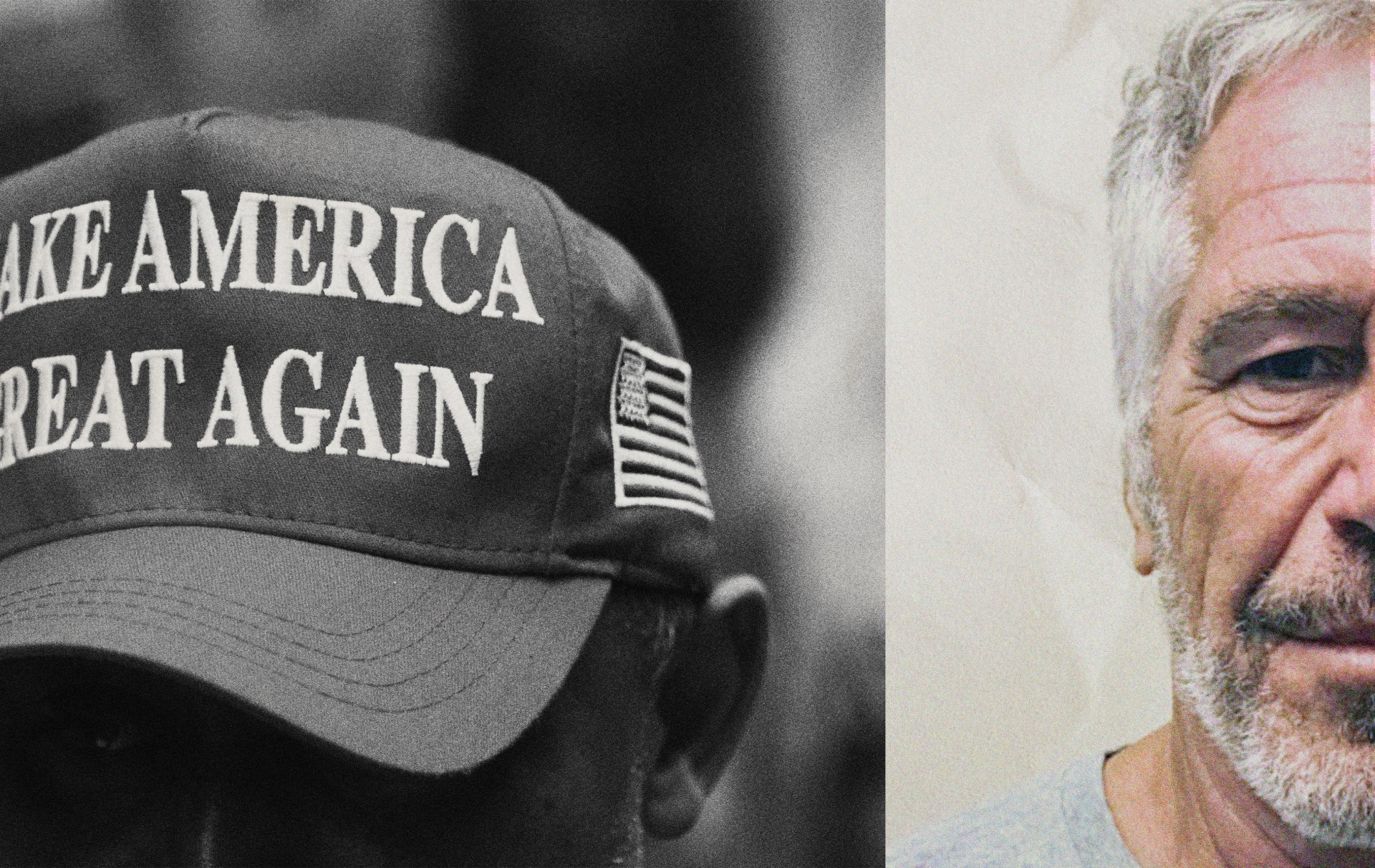




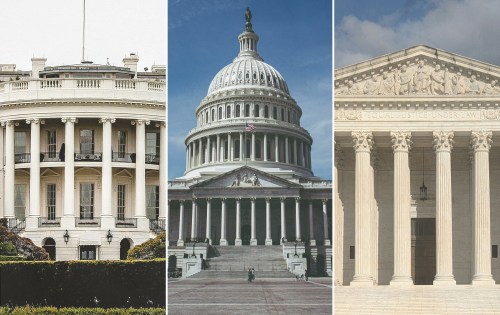




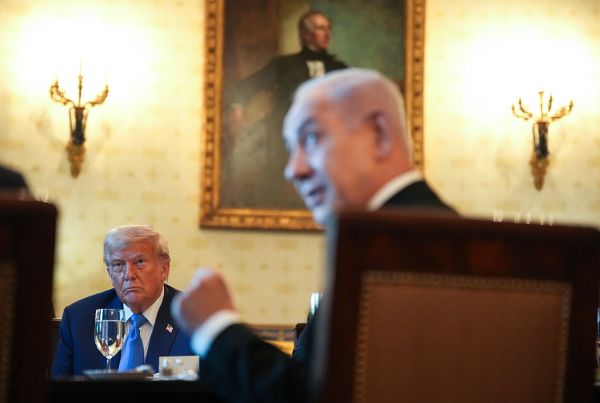

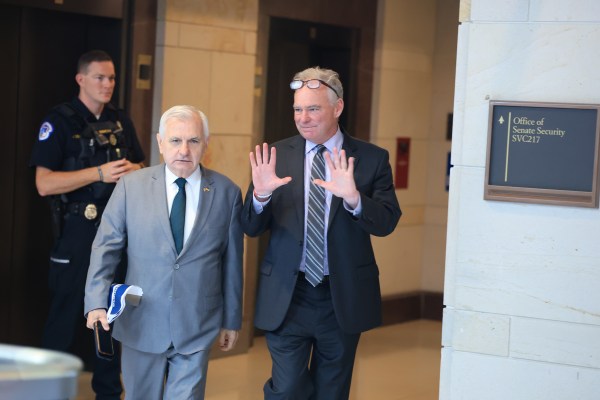
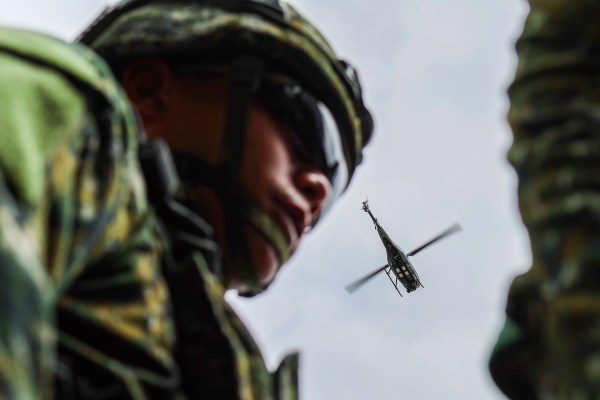
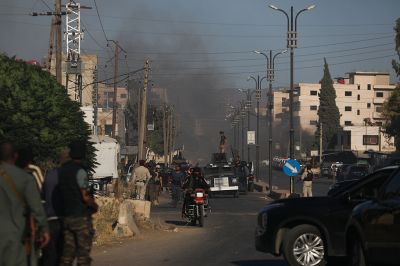
Please note that we at The Dispatch hold ourselves, our work, and our commenters to a higher standard than other places on the internet. We welcome comments that foster genuine debate or discussion—including comments critical of us or our work—but responses that include ad hominem attacks on fellow Dispatch members or are intended to stoke fear and anger may be moderated.
With your membership, you only have the ability to comment on The Morning Dispatch articles. Consider upgrading to join the conversation everywhere.